Review: That’s Very Joan
Find out what’s on the Main Stage this summer in Nick Lieberman and Molly Gordon’s 'Theater Camp'
The Yearning Rating: ✰✰✰✰
Romance: ✰
Sex: ✰✰
Storytelling: ✰✰✰½
Performance: ✰✰✰✰½
Yearning: ✰✰✰✰✰
Ooh, we love the way you love us (and ♥ our posts on Substack)
Light spoilers ahead for Nick Lieberman and Molly Gordon’s Theater Camp.
Written by Meg Heim
Let me take you back, all the way to 2007. It’s July, and I’m in the theater classroom at Thomas Grover Middle School in West Windsor, New Jersey. I’m at theater camp—and we’re putting on Kilroy Was Here, an upsettingly patriotic musical comedy set in 1942 Brooklyn, saluting the brave women and men serving in all branches of the WW2 military. The setting is a U.S.O Club, and Allied intelligence suspects the club is unknowingly harboring Axis spies. Enter Private Joe Kilroy, a young soldier who draws a curious cartoon face everywhere he goes—and it's causing some trouble. He’s the only one who knows where the next Allied convoy will converge, and enemy agents are stopping at nothing to learn his secret.
From the second I read that propaganda script, I knew that the role of Private Joe Kilroy had to be mine. Was it a boy’s role? Yes. Was I thirteen and in the throes of puberty? Totally. Was that going to stop me from landing my dream role? No, it was not.
We’ll come back to the gayness of my genderbent Private Joe Kilroy, but the obscurity of a random 1940s-era musical that can be put on in 3 weeks or less would have been a perfect option for Camp Adirond ACTS, the fictional summer theater camp founded and led by Joan Rubinsky (Amy Sedaris) in Molly Gordon and Nick Lieberman’s co-directed mockumentary Theater Camp. It’s established quickly that Camp Adirond ACTS has scraped along financially for several decades while gay and/or artistic youngsters form lifelong friendships and reap the benefits of 3+ weeks of unbridled creative indulgence. When Joan suffers a seizure and slips into a coma, the responsibility of keeping the struggling camp afloat falls to her clueless, crypto-bro son Troy (Jimmy Tatro).
The mockumentary leans heavily on title cards1 to disseminate pertinent information—and this is how we learn that the documentary decided to continue filming even after its subject entered a lasting coma. This is also how we learn of Amos (Ben Platt) and Rebecca-Diane2 (Molly Gordon), two extremely codependent best friends who attended the camp together for ten years and now return every summer as counselors. Each year, they compose an original musical for only the most talented campers to perform. In honor of their Joan, who in Rebecca-Diane’s words is “looking down, not quite from above”, they introduce Joan, Still3: a rousing retelling of Joan’s life story and what led her to the formation of Camp Adirond ACTS.
This movie is so funny. Upon hearing that a child has decided to attend Adirond ACTS instead of sit shiva for her cousin, Platt says instantly, “Well, she’s putting the work first”. There is a complete and utter buy-in by every actor on the screen and you can really feel the collaborative energy that brought the movie to life. This cast and crew did exactly what every film and TV professional waxes rhapsodic about doing: they rustled up a group of friends, some money4, and a couple of weeks (the whole movie was shot over just 19 days of filming) and made a movie. The dream! I’m so inspired by them. Not only co-directed, the movie was also co-written by Molly Gordon, Nick Lieberman, Ben Platt, and Noah Galvin (Ben Platt’s fiancé, who plays the overworked stage manager with star power, Glenn). These four are very close friends IRL and I love that <3
Staying true to it’s Christopher Guest5 inspired roots, Theater Camp is largely improvised. Gordon and Lieberman shared that they outlined story points and left plenty of room to play, which resulted in 16 hours of footage to sift through. In an interview with On the Scene, Gordon noted that the kids were easily the funniest on set, and enjoyed improvising and acting like their authentic selves. I saw this movie in a crowded theater and I genuinely thought the volume could have been a little bit louder because of how much people were laughing—hopefully that gives you an idea of how hilarious Theater Camp is. It’s a really well-balanced blend: additions to the cast like Patti Harrison and Ayo Edebiri bring in the sharper edge of that modern comedy style and it somehow mixes in perfectly with the theatrical, over-the-top ridiculousness of Rebecca-Dianne’s past lives workshop or Amos in Birkenstocks straddle-mounting the stage in a very male-gymnast-on-a-pommel-horse way. Troy meanders around camp, being bullied by theater loving sixth graders who refuse to celebrate his mainstream aesthetic.
While there is queerness throughout the movie—Platt’s character, Amos, as well as several of the camp educators and campers are queer—the queerest sensibility in Theater Camp comes from the characters’ complete and utter devotion to Joan. There is nothing gayer than worshiping a fabulous older woman in the entertainment industry—especially if she is completely untouchable. Of course, in the case of Theater Camp, these devotees would typically have access to their idol. But thanks to the coma forcibly putting distance between them, Joan is practically elevated to celebrity status. This is the underlying camp of Theater Camp. It’s not just the camp you attend, but the camp you feel within your heart. In her comatic absence, Rebecca-Diane is often asked to channel Joan directly (usually to consult on casting decisions). Gordon whines with effort as the essence of Amy Sedaris settles into her chest and flutters behind her eyelids. It’s alarming, vaguely accurate and hilarious all at the same time.
This movie also made me think about the famous/infamous summer theater camp, Stagedoor Manor. Stagedoor Manor is an intense musical theater camp in the Catskills that is connected to the early education of many prolific actors and performers—among them Natalie Portman, Robert Downey Jr., Lea Michele, and more—and I think there is a sense of that high-stakes attitude, but with a lot less gravitas, in Theater Camp. (There is a 2006 documentary about Stagedoor if you’re curious.) Lieberman and Gordon both attended Stagedoor as kids and shared that it informed their writing and directing process.
Along with the driving force of the story being a will they/won't they save the camp thing, Rebecca-Diane and Amos’ codependent friendship is also a focal point. Their characters’ extreme closeness and intimacy pulls from Gordon and Platt’s decades old friendship (🥺) and actual footage of the two of them performing together as kids features in the movie. Amos is stuck in the fearful place of leaving his comfort zone and putting himself out there—he feels secure and comfortable in his role as a teacher who will someday, eventually, maybe actually perform. Rebecca-Diane craves more, and tries to say so. One of my favorite moments comes from a fight between the two of them: in reference to a career choice Rebecca-Diane made for herself (it’s not about him), Amos says, “Exactly. Why would you do something that doesn’t have to do with me?!” Platt and Gordon are so natural and funny opposite each other; to be honest, I didn’t anticipate their onscreen chemistry but I absolutely love it. There is also a subtle nod in their story to the exhaustion of constant pursuit in creative industries.
Theater Camp is full of lots of little theater in-jokes, like a black market Throat Coat trade and anti-polyester allergy policy. At the same time, it manages to properly make fun of cryptocurrency influencers and the culture of spam accounts offering financial mentorship on Instagram. Patti Harrison features as a hot, evil investment banker affiliated with the rich camp next door. Her one night tumble in Joan’s office with [redacted] is pretty much the only sex we get in this movie but still—she earns those 2 stars6 all on her own with her pencil skirts, furrowed brows and sly, degrading smiles.
The use of title cards—heaviest at the beginning and at the end of the movie—in conjunction with some of the movie being shot on film have a really fun, nostalgic effect; you almost expect to see the telltale black and white crinkly fuzz behind the words on the screen like you would in an old Western. (I will admit that particularly at the end, I felt like there were a few too many title cards). The cast, even amongst the smaller roles, is so stacked. Ayo plays Janet, a girl who really needs a job, fakes a really impressive resume, and definitely doesn’t actually know anything about theater. As a special treat, you get to see almost the entirety of Joan, Still and I left the theater humming the reprise. (I also already checked Spotify for the music.) The kids cast in this movie are all so funny, unique and talented and it feels like Theater Camp is just as much about their characters as it is the adult cast. In one fun pan over the lunch room, Christopher L (Luke Islam) leads friends in a repetitive chant: “We are gay witches and this is our spell”. The transformative power of theater!!
I can personally attest to that so-called magic and manifestation. From the very first day of theater camp, with that Kilroy Was Here script in my hand, I knew somehow that I was meant to be Private Joe Kilroy. I was the only girl who auditioned for it. Me and the seventh grade boys I was auditioning alongside were all pretty much in the same vocal range so it wasn’t too much of a stretch. I memorized my audition monologue about asking some girl to dance. And I got the part!! I was fitted for an army green suit and had my blonde hair slicked back underneath a matching cap. They still put stage makeup on me despite my protests. The girl cast as my love interest was 2 years older and about six inches taller. We rocked the “Jitterbug Saturday Night”7 and I feel like that’s maybe the gayest thing I’ve ever done.
Hiya, Barbie! Next week on The Yearning, Ali finds her inner Blonde Bimbo Girl in a Fantasy World with a review of Greta Gerwig’s Barbie.
If you’re not familiar, a title card is when they impose a black or neutral screen with text across it in a movie or TV show. Typically this would denote a new “Act” or sometimes, “The End”
Naming my daughter this
Love that The Yearning is referencing musicals about Joans two weeks in a row
Some money! It’s just that easy! :)
I’m just learning today that Christopher Guest is a Lord but isn’t that into it
(For Sex)
This isn’t me, I wish it was, I can’t find any photographic evidence of Kilroy Was Here





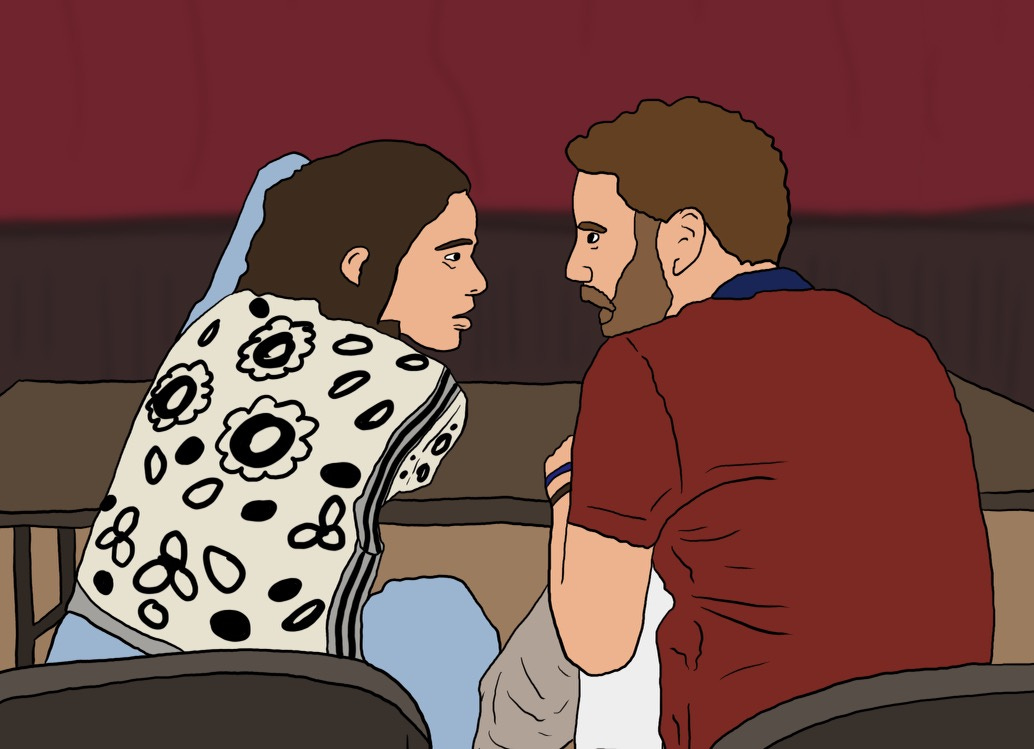
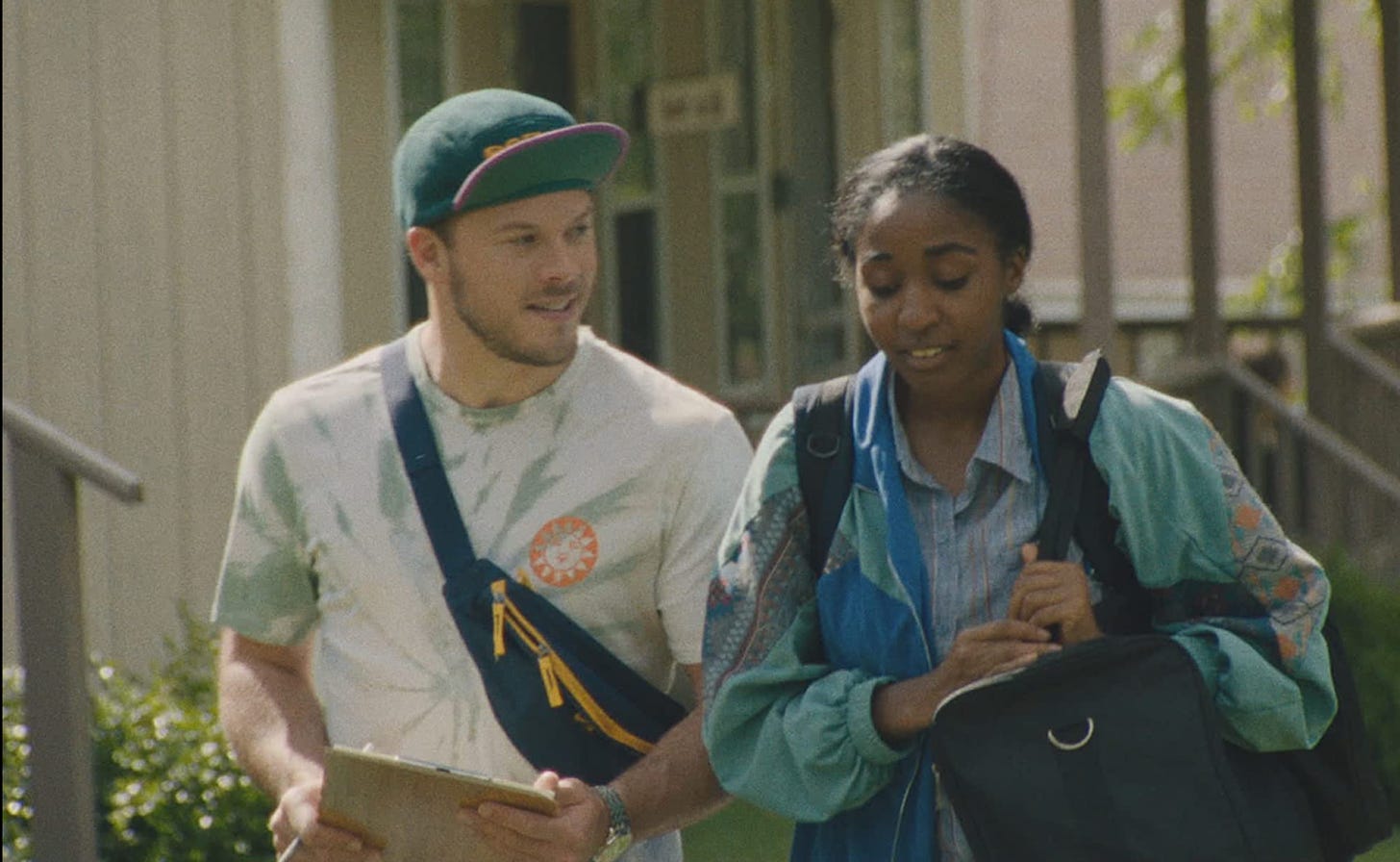
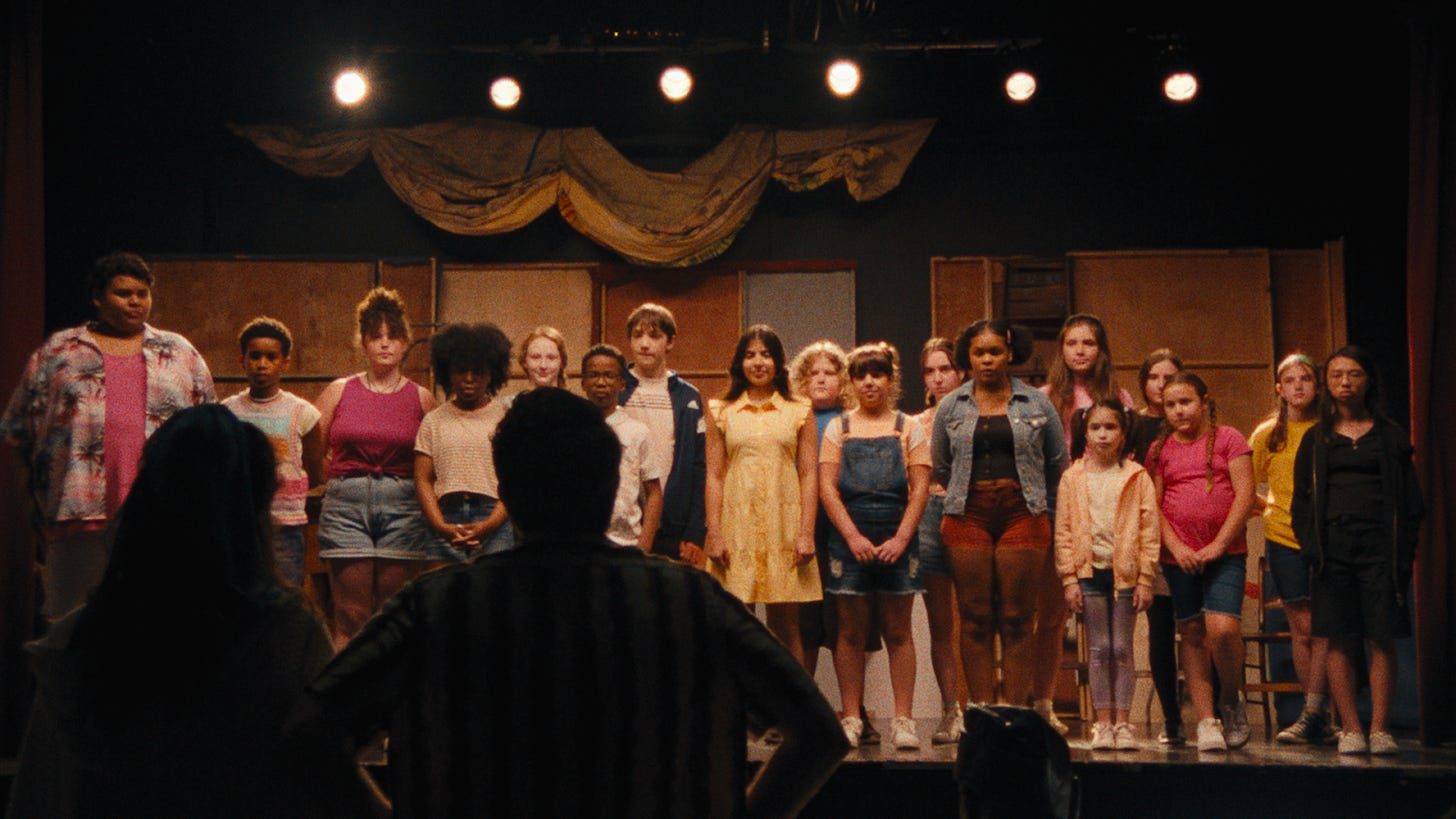
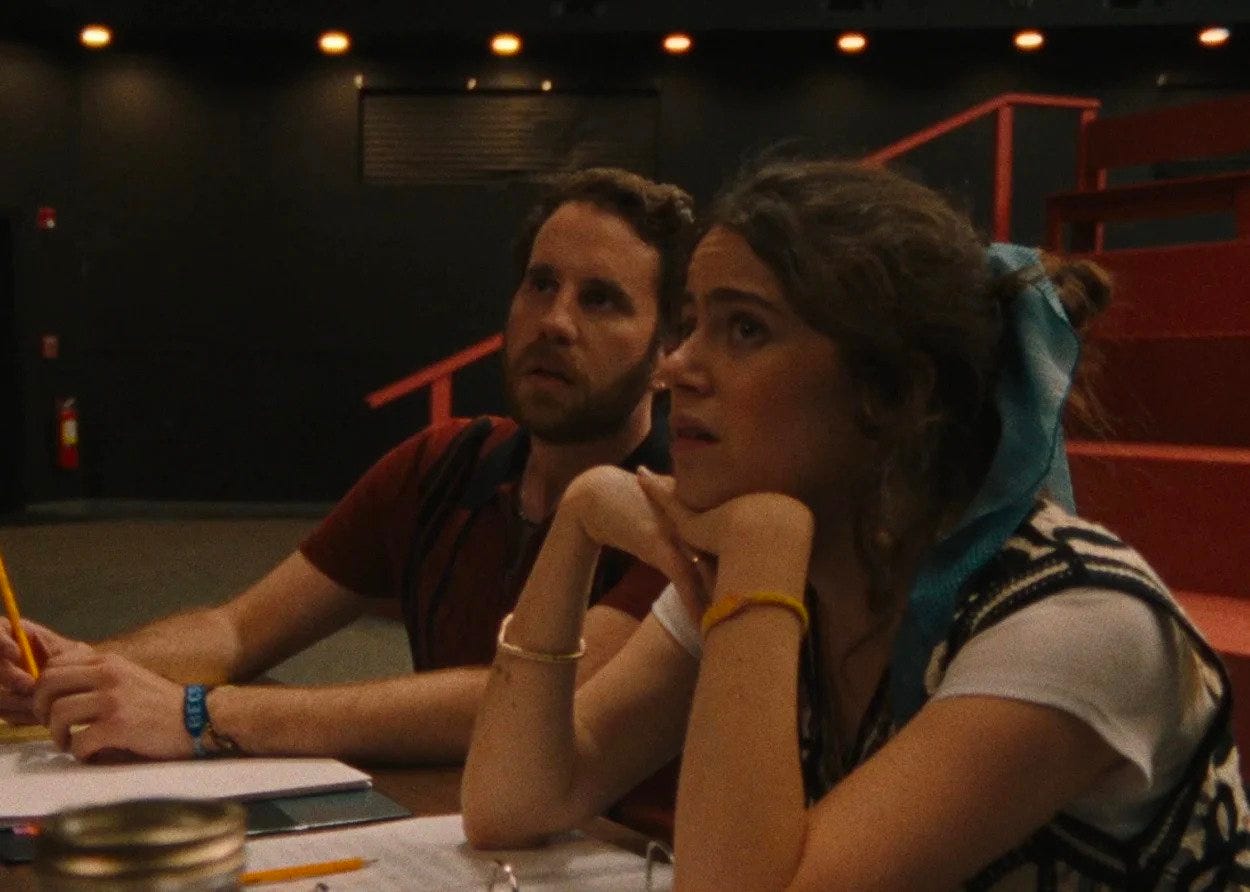
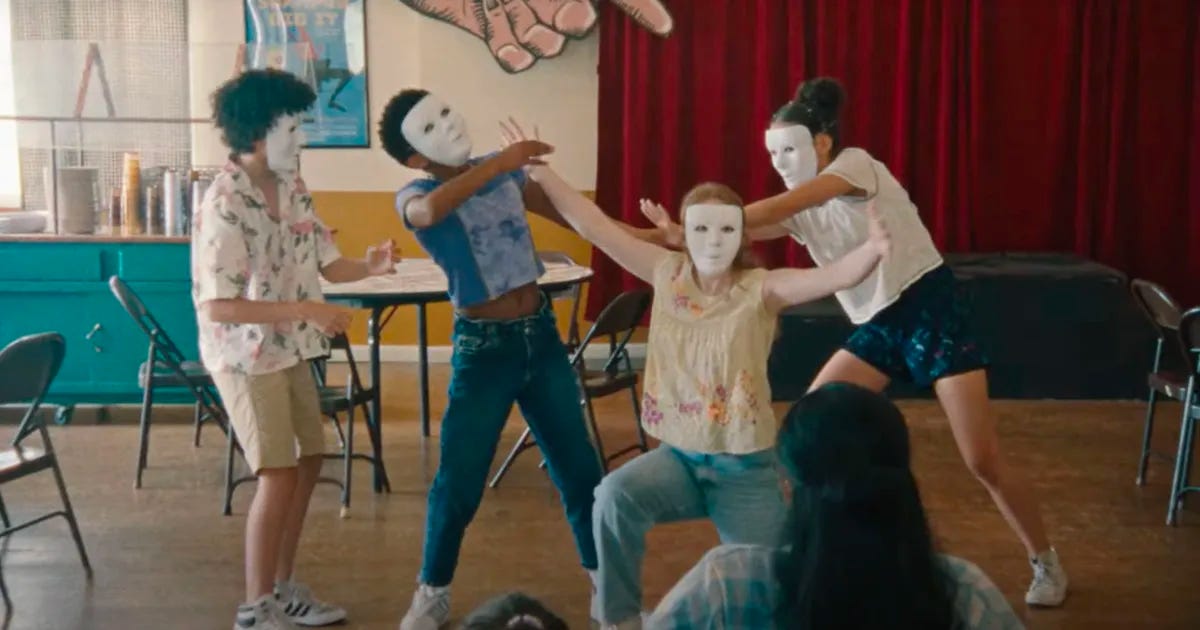
WE NEED VIDEO EVIDENCE, MEG. NOW!!!